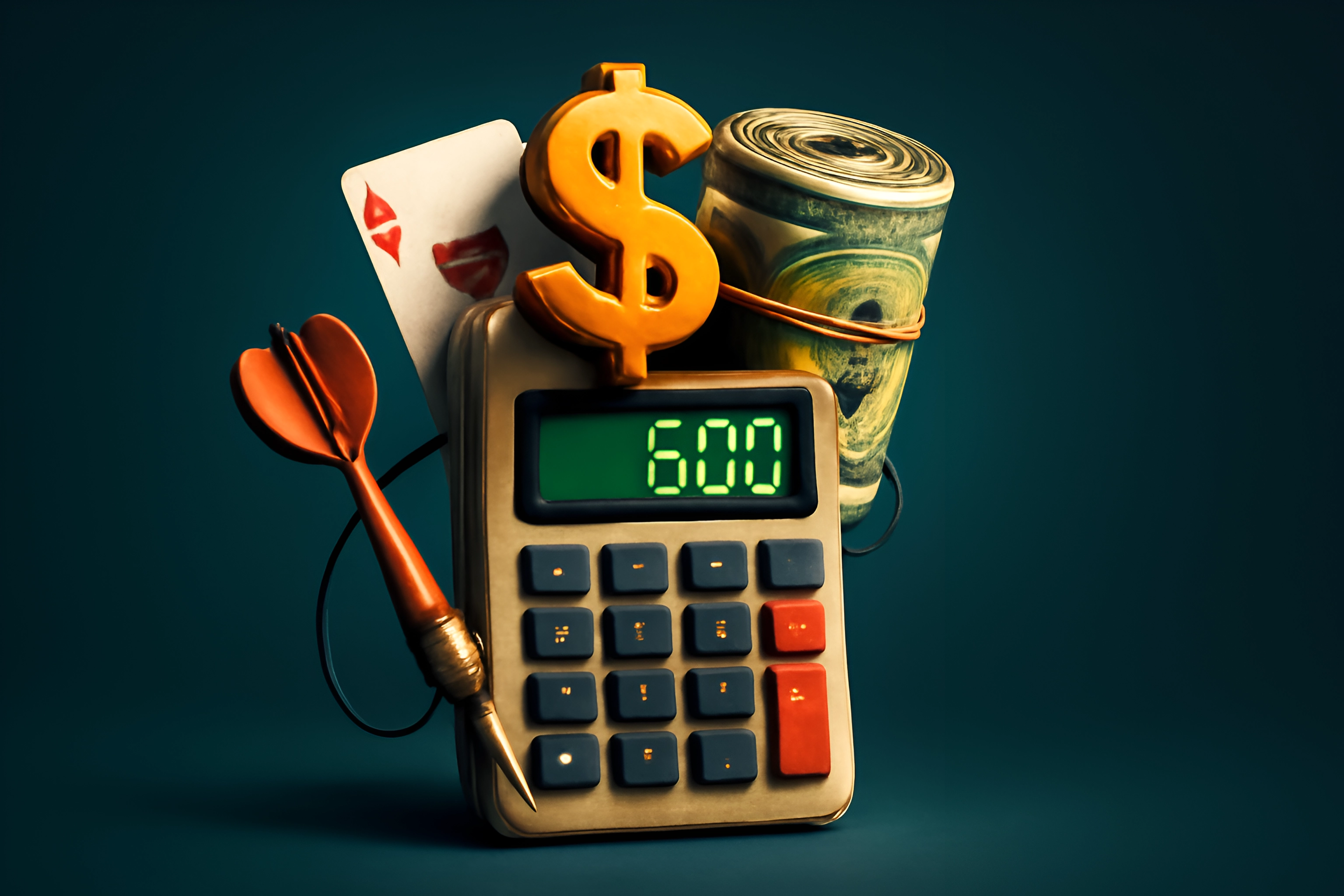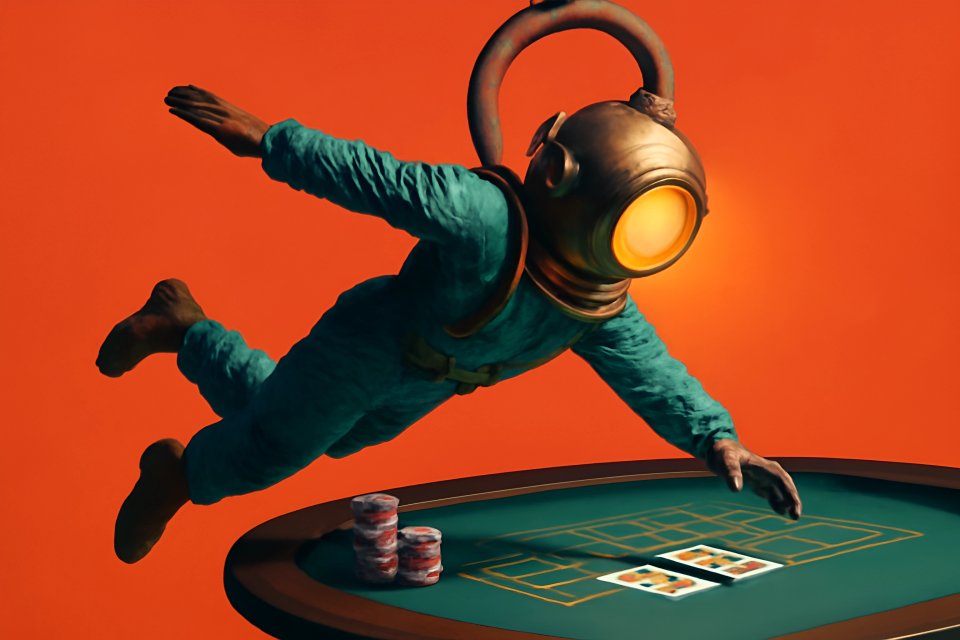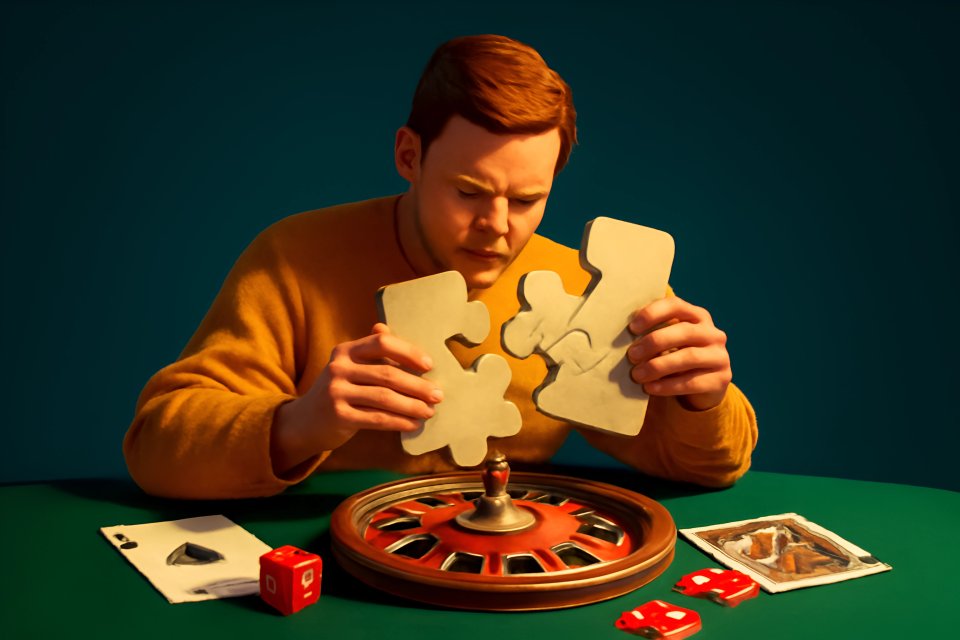
The casino floor pulses with a unique energy, doesn't it? Flashing lights dance, chips clatter, and a murmur of excitement hangs in the air, especially around the bustling table games. But amidst that thrill, perhaps you've felt a flicker of intimidation, a sense of uncertainty when looking at the complex layouts and the seemingly confident players. You might wonder, "What do they know that I don't?" Deep down, we all share that primal desire to feel a sense of control, to make our entertainment budget stretch further, and to transform a hopeful wager into the sweet satisfaction of a win. It’s not merely about luck; it’s about arming yourself with knowledge to play smarter. That’s precisely where The Casino Nest steps in. This isn't just another table game odds beginner guide; it's your personal key to unlocking the often-misunderstood secrets behind the numbers, making them crystal clear and actionable. Stick with us on this journey, and by the end, you’ll not only grasp how odds truly function but also gain practical, powerful strategies for maximizing table game returns.
Why Bother with Odds? Your First Step to Smarter Casino Play
Let's be perfectly frank: casinos are sophisticated businesses, meticulously designed to ensure profitability. Every spin of the roulette wheel, every card dealt in blackjack, every roll of the dice in craps has a built-in mathematical advantage for the house, a concept known as the "house edge." According to KnowYourOdds.net.au, the house edge is essentially the casino's average profit expressed as a percentage of a player's original bet.
So, you might ask, why even bother trying to understand odds if the house inherently has an advantage? Because knowledge, in this arena, is undeniable power. Understanding odds isn't about discovering some mythical system to "beat the casino" every single time – that's a path to disappointment. Instead, it’s about empowering yourself to make informed decisions, to manage your precious bankroll with wisdom, and ultimately, to significantly enhance your long-term play and the sheer enjoyment you derive from the games.
When you take the time to grasp the odds, you transform from a passive participant, merely hoping for the best, into an active strategist, making calculated choices. This understanding is intrinsically linked to responsible gambling; it allows you to set realistic expectations, choose bets that align with your personal risk tolerance, and truly savor the thrill of the game, secure in the knowledge that you're playing with your head, not just chasing fleeting emotions. This approach ensures your casino experience remains a source of entertainment and excitement.
The Core Concepts: Odds, Probability, and House Edge Explained Simply
To truly master smarter casino play, a few core concepts are essential. These aren't as complicated as they might sound, and understanding them will revolutionize how you approach table games. Let's break down odds, probability, and the all-important house edge into simple, digestible terms.
What are "Odds" in a Casino Game?
What exactly are "odds" when you hear the term discussed around a casino table or see them displayed on a screen? In the simplest terms, odds represent the likelihood of a particular event happening. Think of them as a forecast for your bet, indicating how likely or unlikely a specific outcome is.
Now, here’s a crucial distinction every aspiring player must understand: the difference between "true odds" and "payout odds." True odds reflect the actual statistical probability of an outcome occurring. For instance, if you flip a fair coin, the true odds of it landing on heads are 1 to 1. However, casinos offer payout odds that are slightly less favorable to the player than the true odds; this carefully calculated difference is precisely how they ensure their long-term profitability. For example, as highlighted in Casino.org's comprehensive roulette odds guide, while the true odds of hitting a single number in European Roulette are 36 to 1, the casino typically pays out at 35 to 1.
This subtle yet significant disparity between true odds and what the casino pays out is the fundamental basis of the casino's business model. Grasping this odds explanation is your very first step towards viewing casino games not just as pure chance, but as a landscape of calculable risk and opportunity.
Understanding "Probability" – The Math Behind the Magic
Probability might sound like a daunting mathematical term reserved for academics, but at its core, it's a surprisingly straightforward concept, especially in the context of casino games. It's simply a measure of how many ways you can achieve a desired outcome (a win) compared to the total number of possible outcomes. Imagine you're trying to guess a specific number that will come up; probability helps you understand your chances.
Let's take a single number bet in Roulette as a clear example. On a standard European Roulette wheel, there are 37 pockets: numbers 1 through 36, plus a single zero (0). If you bet on, say, the number 17, there's only one way for your bet to win (the ball landing in the pocket labeled 17), but there are 36 ways for it to lose (the ball landing in any other pocket). Therefore, the probability of hitting that single number is 1 out of 37. According to YukonWater.ca's insights on probability in gambling, understanding such ratios is key to assessing risk.
This basic understanding of probability allows you to intelligently assess the risk versus reward profile of different bets available to you. Generally, bets with a higher probability of occurring (like betting on Red or Black in Roulette) will offer lower payouts, while bets with a lower probability (like that single number bet) come with the allure of much larger wins but, naturally, occur far less frequently.
The "House Edge": What It Is and Why It Matters to You
You've likely heard the term "house edge" mentioned frequently in discussions about casino games – but what does it really mean for your experience and your wallet? The House Edge is the casino's inherent, built-in average profit margin from any player's bet, calculated over a vast number of plays. It's typically expressed as a percentage, and this percentage tells you how much of every dollar wagered the casino statistically expects to retain over the long run.
Naturally, as a player aiming to maximize your returns and enjoyment, a lower house edge is always more favorable. For instance, Riverwind Casino's blog on games with the lowest house edge notes that games like Blackjack, when played with optimal strategy, can boast a house edge as low as 0.5%. In contrast, some slot machines can have house edges soaring to 15% or even higher. This means that for every $100 you bet on a low-edge game like well-played Blackjack, the casino, on average and over time, expects to keep only 50 cents, whereas on a high-edge slot, that figure could be $15.
It's important not to let the existence of a house edge discourage you entirely! Wins are absolutely possible, especially in the short term, and that's part of the excitement. Understanding the house edge empowers you to make smarter choices, selecting games and specific bets that give you a better statistical fighting chance and help make your entertainment budget last longer, leading to a more satisfying gaming experience.
A Beginner's Look at Odds in Popular Table Games
Now that we've covered the foundational concepts, let's dive into how odds play out in some of the most popular table games. For each game, we'll briefly touch on its objective, highlight key odds insights, and provide an actionable tip for beginners.
Blackjack: Getting to 21 with Favorable Odds
Blackjack, the timeless classic often referred to as "21," pits you in a direct contest against the dealer. Your primary objective is simple: achieve a hand total closer to 21 than the dealer's hand, without exceeding 21 (which is known as "busting"). The true beauty of Blackjack, and what sets it apart from many other casino games, lies in the significant element of skill and strategy it introduces.
One of the most compelling aspects of Blackjack for any aspiring player is its incredibly low house edge, provided you employ what's known as "basic strategy." Casino.org's guide on the Blackjack house edge states that with optimal play, this edge can be reduced to as low as 0.5% to 1%. This makes Blackjack one of the most player-friendly games you can find in the entire casino. Basic strategy charts, which are readily available online and easy to learn, provide the mathematically best decision (whether to hit, stand, double down, or split) for any hand combination you might be dealt against any possible dealer upcard.
Beginner Tip: Your first and most crucial step to improving your Blackjack game is to dedicate some time to learning basic strategy. Even a simplified version will dramatically improve your odds of winning and reduce the house edge significantly. And here’s a vital piece of advice: steer clear of most side bets, particularly the "Insurance" bet. While it might seem like a tempting safety net when the dealer shows an Ace, Winstar Casino points out that the insurance bet in Blackjack typically carries a house edge of around 7.5%, which is substantially higher and less favorable than playing the main game using basic strategy.
Roulette: Spinning the Wheel with Different Bet Odds
Roulette, with its iconic spinning wheel, the mesmerizing dance of the little white ball, and its air of European sophistication, is fundamentally a game of pure chance. The objective for the player is straightforward: correctly predict which numbered pocket the ball will ultimately come to rest in. The inherent simplicity of Roulette is a large part of its enduring charm, but a clear understanding of the different bet types and their associated odds is absolutely key to playing smartly.
Roulette bets are broadly categorized into two main types: Inside Bets and Outside Bets. Inside Bets, such as wagering on a single specific number ("straight up"), offer the allure of high payouts (typically 35 to 1) but, as you might expect, have a low probability of actually hitting. For instance, Casino.org's roulette odds guide indicates that a single number bet has roughly a 2.7% chance of winning on a European wheel. Conversely, Outside Bets – which include wagers on larger groups of numbers like Red/Black, Odd/Even, or High/Low – offer much lower payouts (usually 1 to 1) but come with a significantly higher probability of winning (close to 50% for even-money bets). It's also critically important to note, as detailed by GammaStack's comparison of roulette types, that European Roulette, featuring a single zero (0), generally offers a lower house edge (around 2.7%) compared to American Roulette (around 5.26%), which has an additional double zero (00) pocket that tilts the odds further in favor of the house.
Beginner Tip: If you're just starting out your Roulette adventure and your primary goal is to make your bankroll last while getting a good feel for the rhythm and flow of the game, it's highly advisable to stick to the Even Money (Outside) bets like Red/Black or Odd/Even. These beginner betting tips offer a much higher chance of frequent, albeit smaller, wins. This approach allows for extended playtime, more spins for your money, and ultimately, more fun and learning opportunities at the iconic wheel.
Baccarat: Simple Game, Great Odds (Usually!)
Baccarat often carries an aura of exclusivity, perhaps due to its depiction in spy films or its traditionally roped-off areas in grand land-based casinos. However, beneath this veneer of sophistication lies one of the simplest and most straightforward table games to learn and play. As a player, you essentially bet on one of three possible outcomes: the "Player" hand winning, the "Banker" hand winning, or a "Tie" between the two. The hand that totals closest to nine is declared the winner.
What makes Baccarat particularly attractive to savvy players, and increasingly to beginners who do their homework, are its remarkably excellent odds on certain bets. Cache Creek Casino's Baccarat guide highlights that the Banker bet boasts a house edge of just 1.06%, even after accounting for the standard 5% commission that casinos typically charge on winning Banker bets. The Player bet is also quite favorable, with a house edge hovering around 1.24%. However, the Tie bet is an entirely different proposition; it comes with a staggeringly high house edge, often around 14.36%, making it a statistically poor choice despite its tempting payout.
Beginner Tip: From a purely statistical standpoint, the Banker bet is your best and most consistent option in Baccarat due to its slightly lower house edge over the Player bet. Make it your go-to wager, especially when you're starting out. And whatever you do, resist the siren call of the Tie bet; its potentially high payout is designed to lure unsuspecting players, but the odds are heavily stacked against you, making it a quick way to diminish your bankroll.
Craps: Demystifying the Dice and Finding Good Bets
Craps, with its characteristically lively and often boisterous atmosphere, coupled with a seemingly complex array of betting options sprawled across the table layout, can appear quite daunting to newcomers. The basic objective of the game revolves around betting on the outcome of a pair of dice rolled by the designated "shooter." While the table might look like a confusing maze of possibilities at first glance, a few key bets within this dynamic game offer some of the very best odds you can find in any casino.
Don't let the busy layout and the rapid-fire calls of the dealers intimidate you; Craps offers some truly fantastic bets that come with surprisingly low house edges. For example, the "Pass Line" bet, which is one of the most fundamental and popular bets in Craps, has a house edge of only about 1.41%, as noted in Casino.org's Craps strategy guide. This makes it an excellent and relatively safe starting point for beginners looking to get acquainted with the game. More experienced players often further reduce this already low edge by "backing up" their Pass Line bets with "Odds" bets after a point is established; remarkably, these Odds bets have no house edge at all, making them one of an extremely rare breed of true-odds wagers in the casino.
Beginner Tip: When you're first approaching the Craps table, feeling the energy and trying to make sense of it all, your best initial strategy is to focus on understanding and sticking to the "Pass Line" bet. It's relatively simple to follow the progression of this bet, and as mentioned, it offers one of the lowest house edges available on the casino floor. As you become more comfortable with the game's flow and terminology, you can gradually explore other betting options, but always be wary of the many "proposition bets" often found in the center of the table, as these typically carry significantly higher house edges.
Actionable Strategies for Maximizing Returns (and Fun!)
Understanding the odds is the first step, but applying that knowledge through smart strategies is what truly leads to maximizing table game returns and, just as importantly, maximizing your enjoyment. Let's explore some actionable tactics.
Choose Your Games Wisely: Focus on Low House Edge
Your very first strategic move in the quest for maximizing table game returns happens before you even place a single chip on the felt: it’s the crucial decision of choosing the right game. It cannot be stressed enough that not all casino games are created equal when it comes to the odds they offer the player. Your goal should be to naturally gravitate towards those games that have an inherently lower house edge.
As we've discussed throughout this guide, games like Blackjack (especially when played using correct basic strategy), Baccarat (with a strong preference for the Banker bet), and certain fundamental bets in Craps (such as the Pass Line bet) generally offer more favorable odds for you, the player. To add another example, Riverwind Casino's blog points out that some Video Poker variations can also offer excellent odds, sometimes boasting a house edge as low as 0.46% with perfect play, which is significantly better than most slot machines, where the house edge can range widely from a reasonable 2% to a rather steep 15% or even more.
Making this conscious and informed choice to primarily play games with a lower built-in advantage for the casino is a fundamental table game strategy. This single decision can significantly impact your long-term results, the longevity of your bankroll, and, consequently, your overall enjoyment of your time spent gaming.
Understand the Bets Within the Game
Simply selecting a game that is known for having a generally low house edge isn't quite enough to optimize your play; you also need to be discerning and selective about the specific bets you make within that chosen game. Many table games offer a wide variety of betting options, and it's a common pitfall for beginners (and even some experienced players) to be lured by bets that are far less favorable than others. These are often colloquially referred to as "sucker bets" for good reason.
For instance, while Blackjack itself, when played with basic strategy, offers excellent odds, many Blackjack tables also feature optional side bets like "Insurance" or "Perfect Pairs." These side bets typically carry a much higher house advantage than the main game. Similarly, in the game of Craps, while the Pass Line bet is statistically sound, many of the proposition bets prominently displayed in the center of the Craps table (like betting on "Any 7" or specific dice combinations) come with sky-high house edges. VegasInsider.com's Craps odds page notes that a bet like "Any 7" in Craps has a punishing house edge of 16.9%.
Always take a moment to do a little research beforehand, or if you're in a land-based casino and it's appropriate and allowed, don't hesitate to politely ask the dealer about the odds or house edge of specific bets if you're unsure. Avoiding these high-edge sucker bets is absolutely crucial for protecting your hard-earned bankroll and truly maximizing table game returns over the long haul.
Bankroll Management: The Key to Longevity
This might not seem directly related to understanding odds at first glance, but effective bankroll management is an absolutely essential pillar for maximizing table game returns and, just as importantly, ensuring you can play long enough to genuinely enjoy the experience. Think of your gambling bankroll as the fuel for your casino entertainment; if you manage it poorly, your journey will inevitably be cut short, often leaving you with frustration rather than fond memories.
The cornerstone of good, disciplined bankroll management is setting a firm budget before you even start playing and, crucially, developing the willpower to stick to it, no matter what. As emphasized by resources like ResponsiblePlay.PA.gov, setting clear money limits is a key rule of responsible gaming. Decide precisely how much money you are willing and able to comfortably lose for that particular gaming session or trip, and once that pre-determined limit is reached, have the discipline to walk away. Furthermore, your individual bet sizes should always be appropriate to your total session bankroll; a common and sensible guideline, often suggested by resources like il-borgia.it's article on bankroll management, is to bet no more than 1-2% of your session bankroll on any single wager.
Proper bankroll management acts as a vital buffer, ensuring you can weather the inevitable losing streaks that are a natural part of casino gaming without depleting your funds too quickly. It allows you to stay in the game longer, thereby giving you more opportunities to experience winning streaks and ultimately enhancing your overall casino experience by reducing financial stress and promoting more rational decision-making.
Know When to Walk Away
Just as critically important as knowing which games offer the best odds and how much of your bankroll to prudently bet is the often-underestimated skill of knowing precisely when to walk away from the table. The powerful allure of "just one more hand" or "one more spin of the wheel" can be incredibly strong, especially when you find yourself chasing losses in an attempt to break even, or conversely, when you're riding a thrilling winning streak and feel invincible. However, truly disciplined and successful players understand the paramount importance of adhering to pre-set limits.
Before you even sit down at a table or log into an online casino, make a conscious decision regarding both a loss limit (the maximum amount of money you are prepared to lose during that session without regret) and a win goal (a realistic profit target at which you will be satisfied and cash out your winnings). As consistently advised by responsible gambling resources like ResponsiblePlay.PA.gov, setting firm time and money limits is a core principle of safe play. Chasing losses is one of the quickest and most certain ways to deplete your bankroll rapidly and can easily turn what should be an enjoyable pastime into a frustrating and potentially harmful experience.
Walking away from the game when you've successfully reached your pre-determined win goal allows you to lock in those profits and savor the sweet taste of success, reinforcing positive gaming habits. Similarly, having the discipline to walk away when you've unfortunately hit your loss limit protects your overall financial well-being and prevents emotional decision-making from taking over. This discipline is not just a good habit; it's a hallmark of smart, strategic players who understand that long-term success in gambling is as much about managing oneself as it is about managing the game.
Look for Favorable Rules or Game Variations
It's a common misconception among beginners that all versions of the same table game are created equal, but this couldn't be further from the truth. Casinos, both land-based and online, can offer slight (and sometimes quite significant) variations in the rules of popular games like Blackjack or Roulette. These subtle differences can directly impact the house edge and, consequently, your statistical odds of winning. Being an observant and informed player who actively seeks out these more favorable conditions can pay real dividends.
For instance, we've already touched upon the crucial difference between European Roulette (which features a single zero) and American Roulette (which has both a single zero and a double zero). If you have the choice, you should always opt for European Roulette, as its house edge is nearly half that of its American counterpart. GammaStack's comparison clearly illustrates this, with the American Roulette house edge typically around 5.26% versus a much more player-friendly 2.7% for European Roulette. In the realm of Blackjack, always look for tables that pay 3:2 for a natural Blackjack (an Ace and a ten-value card on the first two cards) rather than the less favorable 6:5 payout, as the latter significantly increases the house edge against you.
Taking just a moment to check the specific rules, payout structures, or any posted game variations before you commit your money and start playing can be a simple yet remarkably effective table game strategy. Actively seeking out these more player-friendly variations is a smart and proactive way to improve your chances of success without necessarily needing to learn complex new strategies or systems.
Leveraging Bonuses (Smartly!)
Online casinos frequently entice new players, and retain existing ones, with a dazzling array of attractive bonuses and promotional offers. These can indeed be a great way to extend your playtime, give you more opportunities to try out different games and betting strategies, and potentially boost your bankroll. However, it is absolutely crucial to approach these bonuses with a clear head and a thorough understanding of their accompanying terms and conditions.
The single most important factor to consider when evaluating any casino bonus is the "wagering requirement" (also sometimes called a playthrough requirement). As clearly explained in PokerNews.com's wagering requirements guide for beginners, a seemingly generous $50 bonus that comes with a 30x wagering requirement means you must actually bet a total of $1,500 ($50 multiplied by 30) before you are eligible to withdraw any winnings that were derived from playing with that bonus money. These requirements can sometimes be quite steep and challenging to meet, making it difficult to actually realize a profit from the bonus itself.
While bonuses can certainly be beneficial for maximizing table game returns by providing you with additional funds to play with, always, always read the fine print meticulously. At The Casino Nest, we strongly advocate for transparency and informed decision-making, so ensure you fully understand the wagering requirements, any game contribution percentages (as not all games count equally, or at all, towards fulfilling these requirements), and any maximum withdrawal limits associated with a bonus before you decide to claim it. For further insights into selecting a platform that aligns with your strategic goals, consider exploring our detailed comparison of comparing crypto casinos vs. traditional models, which can help you choose an environment best suited to your play style.









